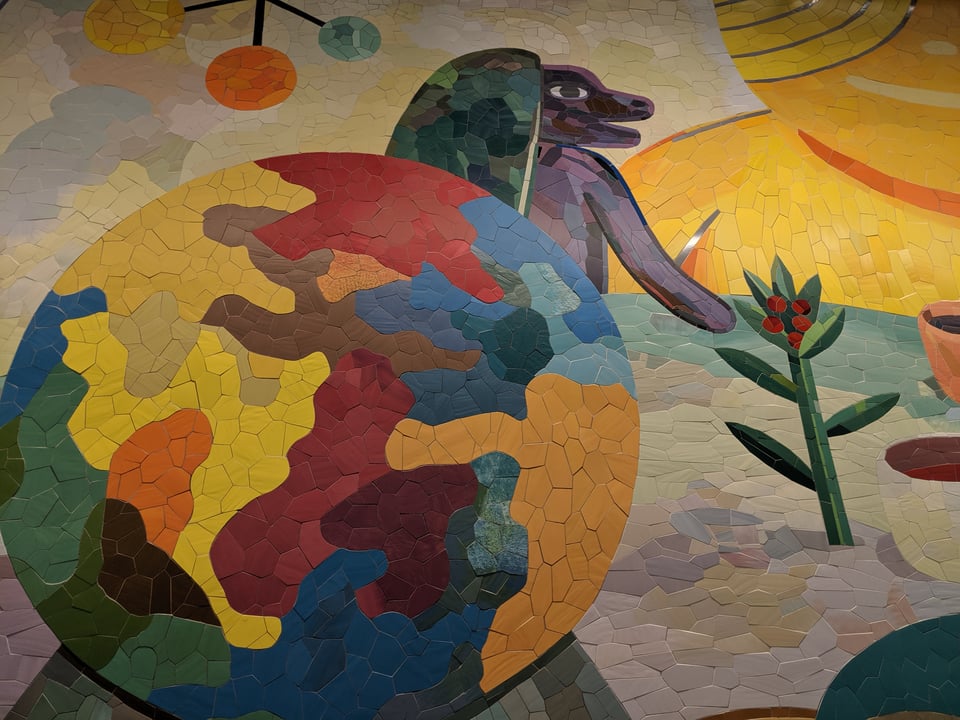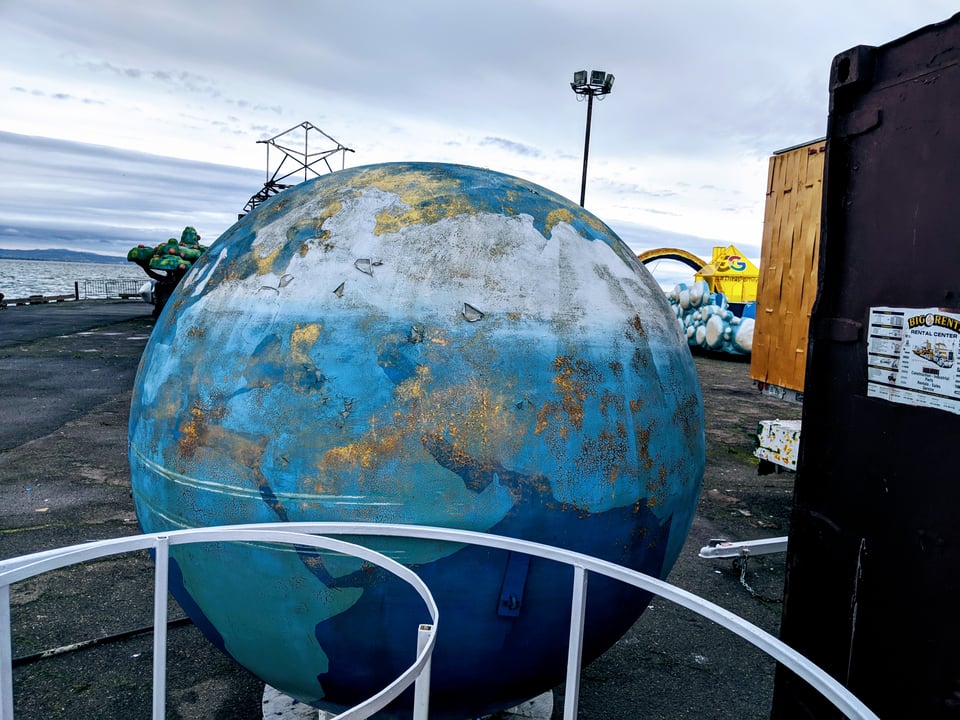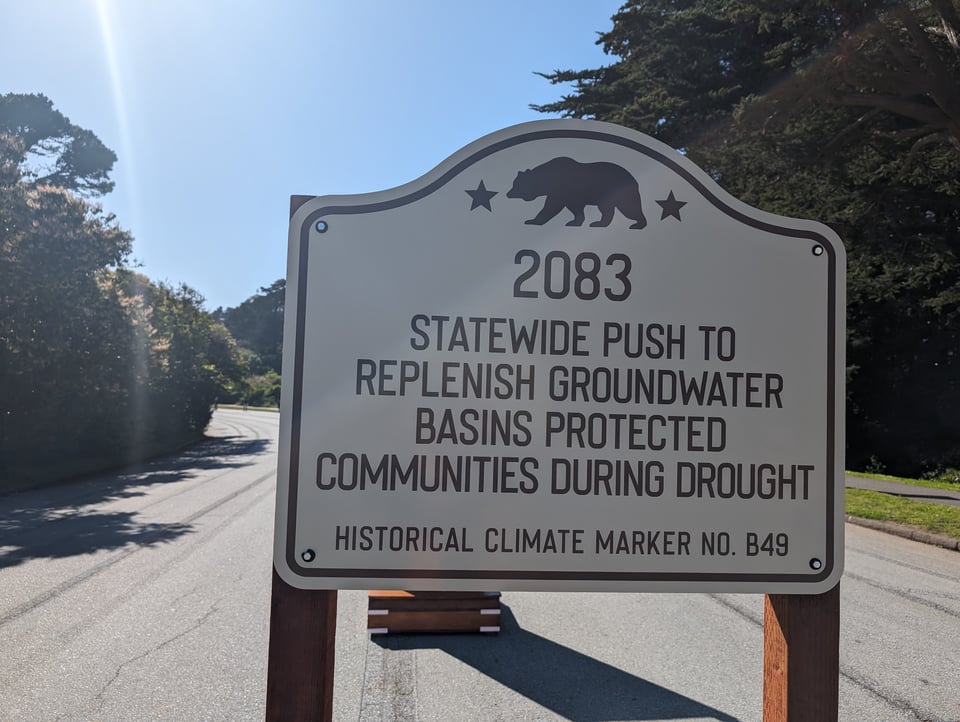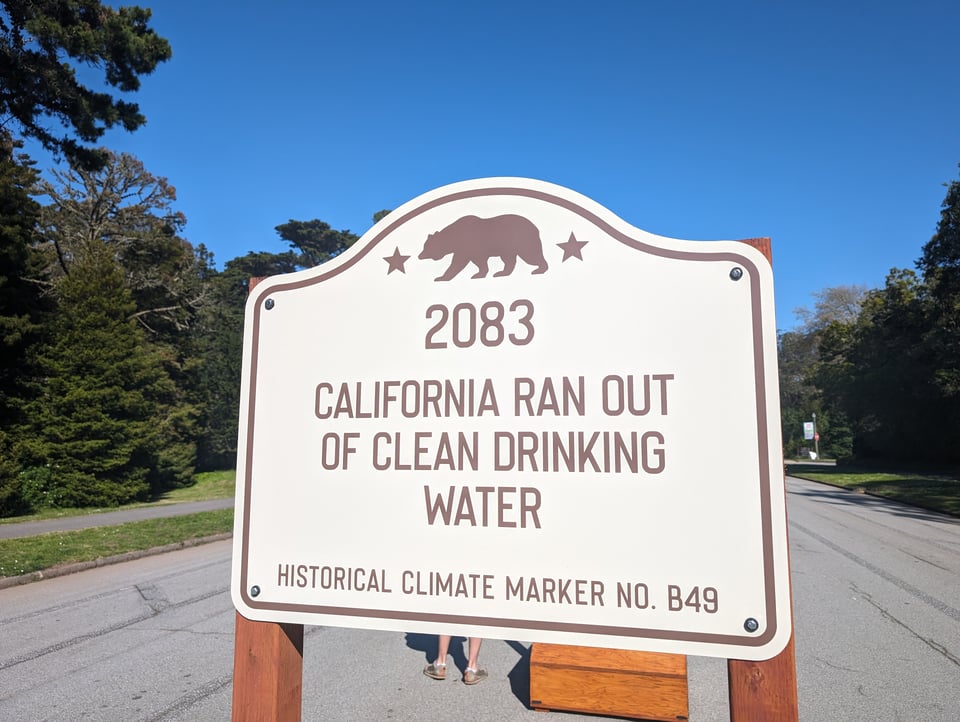What It Means To Be Optimistic About the Future

For a few years, before the pandemic, I got asked the same question at every convention, book festival and conference: “Do you feel optimistic about the future?” (Or sometimes, “What makes you optimistic about the future?” Or something about optimism versus pessimism.)
I always responded the same way: Optimism about the future is really optimism about human nature. If you believe in a better future, you’re essentially believing that humans are capable of responding to crises and challenges with kindness, creativity and generosity, rather than with selfish rage.
Not gonna lie: the past few years have somewhat dented my faith in human nature. But I still believe that people are capable of being decent to each other.
A while back, I interviewed the brilliant and erudite Malka Older about what factors make people want to help their neighbors after a disaster, rather than retreating into selfishness and cruelty, and it did a lot to clarify the moment we’re still living through.
But lately, I’ve been thinking about optimism (or hope) mostly in terms of climate change, because it feels as though we’re at an inflection point — in a few different ways. We keep breaking new heat records, and there are indications that the climate is worsening faster than many of us had expected. The effects of climate change are now very apparent to a lot of people, in the form of weather events, heat waves, forest fires, and overflowing septic tanks. And as E.J. Dionne recently pointed out, this year’s presidential election could be crucial in deciding whether we make any attempt whatsoever to deal with the problem, or just sell out to the fossil-fuel industry. (Also, I sort of feel like if we don’t address climate change, then all of our many other challenges will inevitably get worse. We’ll have a huge refugee crisis, massive unrest and upheavals, and probably a lot more brutal authoritarianism.)

So do I feel optimistic (or hopeful) about the future? It depends how I think about it.
Cory Doctorow is fond of saying that there’s a key distinction between optimism and hope: “Optimism is why the Titanic didn’t have enough lifeboats. Hope is why people kept swimming.” (I may be paraphrasing slightly.) In other words, optimism is a mindless faith in our own ingenuity and the infallibility of the systems we design. Meanwhile, hope is an active determination to do everything we can to make things better, even in the face of insurmountable challenges.
By Cory’s formulation, a lot of what I’m hearing lately about climate change sounds like optimism rather than hope. There’s a lot of faith in technological solutions like geo-engineering (which may achieve little, or may actually make the situation worse, as I explained recently.) Or carbon capture, which engineer and SF writer Wole Talabi described as “a Band-Aid” in a recent episode of Our Opinions Are Correct. The only technological solution that I’m aware of that has the potential to help solve climate change is alternative energy, like solar and wind power — and we’d still have to take more steps to reduce our carbon output, which would necessarily involve policy changes and some social transformation.
A lot of my thinking on this issue was crystallized by a recent article in The New Republic by Kate Aronoff, which I urge you to read. She writes:
[The] cases for hope brim with heroes — proactive companies, social entrepreneurs, activists, etc. They typically lack villains. Naming villains — say, polluters or the elected officials they bribe — would involve politics, which is complicated. Lacking any real enemies, then, climate hope’s stated foes are the “doomers.” The relationship between hope and action is never specified. Precisely what progress is enabled by some critical mass of people feeling adequately hopeful? How many people feeling hopeful is enough?
In other words, “hope” needs to be active, and goal-directed, or it’s more like the “optimism” in Cory’s maxim above.
Which brings us back to faith in human nature. A simple model of human behavior would assume that once people are confronted with inescapable evidence of a sweeping problem, they would drop everything and come together to fix the problem ASAP. That scenario massively underestimates the human capacity for denial. Not to mention the fact that people have a hard time imagining futures that are radically different than the past, and tend to discount negative information about the future.
And people really, really do not want to hear about climate change. It’s weird. I’ve found out the hard way many times that putting the words “climate” or “warming” into the headline of a science article will result in absolutely nobody clicking on it, and I’ve heard this from plenty of other folks. People don’t want to read about this issue, because they hate thinking about it.
It’s easier to be hopeful that people will be able to rebuild after some amount of irreversible climate change, as seen in recent novels like The Light Pirate by Lily Dalton or The Great Transition by Nick Fuller Googins. In other words, that we’ll keep fucking around until the finding out gets much worse.
So what gives me hope for the fight against climate change? There are a bunch of answers I could give. I could talk about storytelling, which is something dear to my heart that I do think has immense potential to create change. The more we tell stories about not just private disasters but climate survival and both people doing the hard work of fixing our habitat, the more we're able to imagine a future where humans get to survive and flourish. There’s a wonderful art installation in Golden Gate Park right now, where a bunch of signs commemorate climate milestones in the future — but if you look on one side, they’re good news, while the reverse side has the worst-case scenario:


I could also talk a lot about rising anti-capitalist sentiment from people who would never have directly criticized capitalism even a few years ago. I’m hearing it everywhere, even from folks who are pretty middle-of-the-road politically. I've been noticing for a while that critiques of capitalism have gone "mainstream," appearing in discussions about the entertainment industry, food production and consumption, the gig economy, and many other places. I could also celebrate the Land Back movement, which restores tracts of land to their traditional stewards, indigenous people. Or I could talk about the homeowner’s insurance crisis, which is utterly horrible but does make the consequences of climate change feel more noticeable.
But instead, I'll talk about something else.
As a trans person, I am highly aware of a society-wide gender panic that is sweeping a lot of world right now. Trans folks are being dehumanized and having our rights taken away in many parts of the world, and it's even worse for trans kids. A lot of fear-mongering and pseudoscience are being thrown around, and I can’t overstate how scary things are. But this is part of a larger moment, in which tons of reactionaries are sounding the alarm about traditional gender roles in general. We hear a constant bleating from the army of media sheep that “traditional masculinity” is under threat, and we're constantly bombarded with content about the “trad wife” lifestyle. There's a lot of not terribly subtle propaganda in favor of forcing women back into a place of subservience and constrained choices.
At this point, you're probably wondering why the heck I would describe this as a cause for hope. Allow me to explain.
I believe the exploitation machine that is shitfucking our biosphere to be made up of many smaller interlocking parts, which together appear impervious but can be picked apart separately. And many integral parts of this system rely on white patriarchy and the notion of a gender-based hierarchy. We built an unsustainable transit and housing system on the notion that “a man's home is his castle." We also supercharged our most heinous corporations in part by celebrating a macho image of a swaggering he-man who makes the world his bitch, in the process trashing everything in sight.
“Traditional gender roles” are part of the toxic mindset that sees natural resources as something to be chewed up and destroyed, and fragile habitats as just another thing to be conquered. (To be clear: a part, not the whole.) White patriarchy is also a key part of why the people who are most vulnerable to climate disasters aren’t seen as worth safeguarding or even considering.
Before anybody says it: I know feminism is not a perfect response to climate change. There are plenty of white “Lean In” feminists who’d be just as happy to burn everything down in the name of “empowerment.”
But lately I really have been drawing comfort from the fact that the worst people in the world genuinely seem scared of a world where we no longer automatically assume that men will, and should, be monstrous. Or that gender is immutable, and that we are our gametes. When I celebrate fictional portrayals of a masculinity that is kind and generous and capable of thoughtfulness instead of aggro yapping, this is one piece of my hope for the future.
Again, I don't think weakening the patriarchy, on its own, will fix the damage we're doing to our own habitat. I think it's going to take a lot of change in a lot of areas, over a period of time. But I think it's one of the things that needs to happen, both for the dignity of all human life and for the embrace of a different kind of leadership. So I draw some hope from the fact that the patriarchy seems really scared right now. Men are irradiating their own testicles, they're so freaked out. It's undeniably terrifying to be on the receiving end of that backlash — and I’m scared a lot of people are going to get hurt — but it is a backlash. Really, when I hang out with Gen Z and Gen Alpha kids, and see so much casual queerness and so much acceptance of gender non-conformity, it makes me feel like maybe the army of screaming men are right to clutch their pearls.
It really comes back to what I said at the beginning about human nature, and the need for community and mutual aid instead of selfishness and aggression.
Bottom line: the more we make everything gay, the more we celebrate kindness in everyone including men, the closer we get to knocking down one of the struts supporting the planet-fucking machine. So happy Pride, everyone!
Something I Love Right Now
I’m honestly obsessed with Delicious in Dungeon (Dungeon Meshi), an anime series on Netflix. It’s a fantasy adventure about a D&D-style dungeon crawl, except that the party of adventurers survives by cooking and eating monsters. There’s a segment of every episode where it turns into a cooking show. But there’s also a dense mythos, full of cool backstory, and the characters get more complex all the time. It does that thing where it swings tonally between silly/cute and dark/scary at the drop of a helmet. It’s just utterly delightful. Check it out!
My Stuff
I have books!
The Unstoppable trilogy is space fantasy with cool aliens and lots of thoughts about universal translators and the ethics of violence.
Never Say You Can't Survive is writing advice but also self-help, about using creative writing to get through tough times.
Even Greater Mistakes is weird short fiction, with a lot of queerness and silliness (but also darkness!)
I have written a ton of monthly book review columns in the Washington Post.
Our Opinions Are Correct is the podcast I co-host with Annalee Newitz. The latest episode is about summer movies, TV and books.
I’m doing an event with Annalee in Vancouver BC on June 22 for their book Stories Are Weapons.
ICYMI I co-created a trans superhero named Escapade for Marvel. Read about her adventures in New Mutants Vol. 4 and New Mutants: Lethal Legion. (To get the beginning of her story, you need to track down the 2022 pride issue.)
